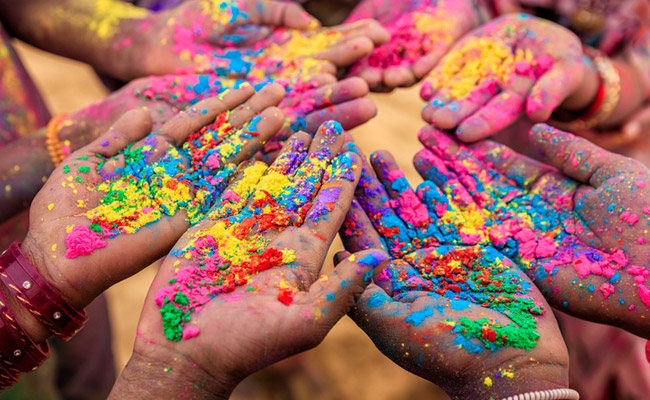Holi: The Festival of Colors, Love and Fun!
Holi, also known as the Festival of Colors, is one of the most vibrant and exciting festivals in India. It is celebrated on the full moon day in the Hindu month of Phalgun (February/March) and marks the arrival of spring. The festival is celebrated with great enthusiasm and joy across the country, as people come together to smear each other with colors, dance, sing, and enjoy festive delicacies.
The Origins of Holi
The origins of Holi can be traced back to Hindu mythology. According to one legend, the festival celebrates the victory of good over evil. The story goes that there was a demon king named Hiranyakashipu, who had gained the power to not be killed by any man, animal or god. He had become arrogant and thought he was invincible. However, his son Prahlad was a devotee of Lord Vishnu, and Hiranyakashipu tried to kill him several times. Each time, Prahlad was saved by Lord Vishnu. Finally, Hiranyakashipu's sister, Holika, who had a boon that protected her from fire, took Prahlad into a fire with her to kill him. However, Prahlad survived, and Holika was burned to ashes. This story is the reason why people light bonfires the night before Holi, to symbolize the destruction of evil.
Another legend behind Holi is the love story of Lord Krishna and Radha. According to Hindu mythology, Lord Krishna used to play Holi with his friends and loved ones, and the festival became associated with his playful and mischievous nature.
Celebrating Holi
Holi is a time when people forget their differences and come together to celebrate the festival with love and joy. The festival is usually celebrated over two days. On the first day, people light bonfires and offer prayers. This is called Holika Dahan. On the second day, people come together to play with colors, sing, dance and have fun.
The main attraction of Holi is the throwing of colored powder and water. People use dry colors, known as 'gulal,' as well as colored water, to smear each other's faces, hair and clothes. It is a fun and lively activity that brings people together, regardless of age, gender, or social status.
In addition to playing with colors, people also prepare special festive foods and drinks. Gujiya, a sweet dumpling filled with coconut and dried fruits, is a popular Holi delicacy. Thandai, a cold milk-based drink, is also enjoyed during the festival. It is made by mixing milk, almonds, saffron, and various spices such as cardamom, pepper, and fennel.
Regional Variations
While Holi is celebrated across India, the way it is celebrated varies from region to region. In the northern state of Uttar Pradesh, the town of Mathura is known for its grand Holi celebrations. The town is associated with Lord Krishna, and the celebrations here are especially colorful and vibrant.
In the western state of Gujarat, Holi is celebrated with great enthusiasm, and people come together to perform traditional folk dances like Garba and Dandiya.
In the state of West Bengal, Holi is known as Dol Purnima or Dol Jatra, and it is celebrated by taking out processions with decorated idols of Radha and Krishna.
Safety Precautions
While Holi is a fun and joyous festival, it is important to take certain safety precautions. Some people may use synthetic colors that can cause skin irritation and other health problems. It is recommended to use natural colors made from flowers and herbs instead.
It is also important to protect your eyes and avoid throwing colors directly in someone's face. Some people also prefer to wear old clothes or clothes that they don't mind getting stained.
Another safety concern during Holi is the consumption of alcohol. Some people may drink heavily during the festival, which can lead to accidents and injuries. It is important to drink responsibly and avoid driving after consuming alcohol.
Finally, it is important to respect others' boundaries and avoid forcing anyone to participate in the festivities if they do not want to. Some people may choose not to participate in the color throwing, and it is important to respect their decision.
Labels: culture, Interesting, world
)

0 Comments:
Post a Comment
Subscribe to Post Comments [Atom]
<< Home